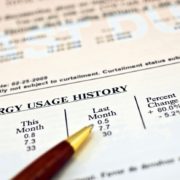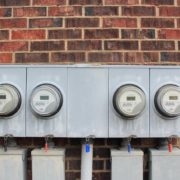Does Bankruptcy Erase Utility Bills?
The decision to file for any form of bankruptcy is not easy, but if you are dealing with unmanageable or overwhelming debt, bankruptcy is a way to gain some financial breathing room. If you owe a great deal on past due utility bills, a chapter 7 bankruptcy can help you liquidate these debts. A chapter 13 bankruptcy can help you restructure these debts. If you’re facing a utility shutoff, it’s important to file before that happens.
Utility Bills Are an Unsecured Debt
Unlike a debt that is backed by collateral, such as your home or your car, a utility bill is an unsecured debt. If you have made a deposit on your utilities, you may lose it in the process of filing for bankruptcy.
However, you will be protected against shutoff once you file. You may be required to pay an additional deposit after filing. If this is left unpaid, it is possible that you may face a utility shutoff. Work with your bankruptcy attorney to make sure you pay at least the required minimum deposit, post-filing, to keep your lights, heat and water turned on.
The information regarding your unpaid utility bills will be applied to your means test. Because you have to pass a means test to qualify to file bankruptcy, it’s critical that you have all of this information with you when you and your attorney work through the filing information. Your bankruptcy filing process will be less painful if you have all of your debt information included in the filing.
Do I Have to List Unpaid Utility Bills When I File for Bankruptcy?
Because utility bills are an unsecured debt, they need to be included in your bankruptcy filing. Depending on the type of bankruptcy you’re filing, you may be required to restructure the debt and pay at least a portion of it back.
Once you’ve filed for either a chapter 7 or a chapter 13 bankruptcy, you’ll be protected from the calls of creditors. You’ll also be protected from shutoff. You should be protected from these accounts being sent to collections, though outstanding debts that have been sent to collections will still need to be addressed.
Will Filing for Bankruptcy Wipe Out Unpaid Utility Bill Debt?
If you file a chapter 7 bankruptcy, it’s likely that your unpaid utility bill debt will be completely wiped out. As noted above, you may lose your previously paid deposit and you may be required to pay another one in the time allotted after you file for bankruptcy.
If you file a chapter 13 bankruptcy, the unpaid utility bills may be included in the restructure of your debts. Previously paid deposits may be retained by the utility company and another may be required, but you will have time to address the debts.
For those who are being contacted by utility companies for unpaid debts, one of the biggest benefits of any bankruptcy filing is that those call will now be directed to your bankruptcy attorney’s office, rather than your home.
Understanding the Protections of Each Form of Bankruptcy
Chapter 7
A chapter 7 bankruptcy is also known as a liquidation bankruptcy. You can get free of the pressure of unsecured debts, such as credit cards and utility bills, but you will not be protected from repossessions. If your income is simply not enough to cover your bills and your possessions are not extensive, filing a chapter 7 is a fairly quick way to get out from under the pressure of that debt.
There is an income restriction for those who choose to file a chapter 7. You will need to present information about your income from all sources as well as your debts when you start your filing process.
Be aware that a chapter 7 will stay on your credit record for 10 years. It should not take more than 6 months to file and complete the steps of a chapter 7 bankruptcy.
Chapter 13
When you file a chapter 13 bankruptcy, you’re asking for a chance to restructure your debt while getting protection from your creditors. You will be protected from repossessions and foreclosures, but you will be required to participate in a repayment program that will tie up any extra income for up to 5 years.
As a general rule, filing a chapter 13 bankruptcy is the best option for higher income filers. If you’re working to save items bought with secured debt, such as your home and vehicles, a chapter 13 bankruptcy can give you time and a structure. Depending on your location, you will be allowed to keep a vehicle to get to work and your home in the restructure.
A chapter 13 bankrupty will take longer to file; you will need to complete the repayment process to fully discharge your chapter 13. This bankruptcy will stay on your credit report for 7 years.
In the process of filing a chapter 13, you will be provided with guidelines of what monies from your income you can keep for your use. The cost of the repayment plan can be challenging. These restrictions on your spending and your repayment plan will last from 3 to 5 years.
Because the repayment plan can be quite onerous, it’s important to be sure that you’re ready to undertake this effort. For solo filers, the hard work of a chapter 13 can be a source of tremendous stress. For couples, working through a chapter 13 bankruptcy can put a lot of pressure on the relationship.
Keeping the Lights On
If you’re facing overdue bills that you can’t pay and are dealing with the threat of shutoff, it’s worth considering a chapter 7 or chapter 13 bankruptcy. The overall amount of your debt, both secured and unsecured, needs to be carefully considered before you file. The value of the possessions you need to protect will also come into play, and your income will have a large impact on the form of bankruptcy you choose to file. Your attorney can help you make the best decision for your financial future.





